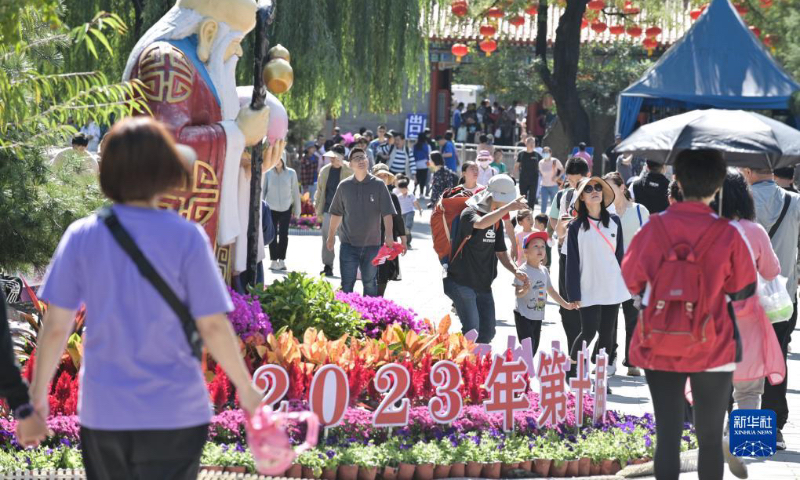There will be 896 million domestic tourists travelling during this year’s Mid-Autumn Festival and National Day holidays, an increase of 86 percent compared to last year, China Ministry of Culture and Tourism estimated on Saturday. Revenue from domestic tourism revenue is expected to reach 782.5 billion yuan ($107.3 billion), a growth of 138 percent compared to last year. This marks the busiest Golden Week in five years, and it demonstrates that the tourism industry is entering a new normal and becoming an important engine driving the country’s economy.
The ministry predicted that popular tourist cities such as Shanghai, Suzhou and Chengdu, will experience an exceptionally high demand in the cultural and tourism market. The number of hotel and flight bookings has increased at least five times compared to the same period last year.
According to data released by Ctrip, one of China’s largest online travel agencies, the number of tourists on the first day of the Golden Week holidays has surged, with overall tourism orders increasing 2.8 times compared to the first day of the National Day holidays last year, and a 20 percent increase compared to the first day of the May Day holidays this year.
Notably, the overall tourism order volume for the first day of the Golden Week in Chengdu, Southwest China’s Sichuan Province, increased by 492 percent compared to last year.
Famous tourist spots in Chengdu, such as the majestic Chengdu Research Base of Giant Panda Breeding and the historic Jinli Ancient Street, are teeming with visitors. The sight of families and friends eagerly posing for photos with the adorable pandas or strolling along the ancient street, immersed in the rich cultural heritage, is a testament to the popularity of Chengdu as a tourist destination.
In addition, Hangzhou also received a great popularity thanks to “Asian Games fever,” and some local residents who wanted to have a leisure trip on the first day of the holidays encountered a large influx of tourists from other places, eventually deciding to return home. Some people are calling online for “local residents to give way and let the scenic spots be enjoyed by tourists from other places first.”
Driven by multiple factors such as long holiday trips, family reunions, Asian Games attendances, this year’s National Day holidays has reached a new level of crowdedness. Orders for flights, scenic tickets, hotels, and homestays have all shown significant year-on-year growth.
Many cities have also increased their supply of tourism offerings, which not only drive domestic demand and consumption but also serve as important windows to showcase a city’s culture and image.
At the same time, outbound tourism is accelerating its recovery, with outbound orders on the first day of the Golden Week holidays increasing by 54 percent compared to the May Day holidays this year, and 11 times compared to the first day of the National Day holidays last year, according to Ctrip.
Among them, outbound bookings to Thailand have increased by more than 28 times compared to the first day of the National Day holidays last year, and have basically returned to the same level as the same period in 2019.
Thailand on September 13 announced plans to adopt a visa-free policy for tourists from China from September 25, in order to boost the local tourism industry. In 2019, 11 million Chinese tourists visited Thailand, accounting for one third of the country’s overall foreign tourists, according to media reports.
A Beijing resident surnamed Huo started her journey to Thailand with her family during the holiday. “We set off two days ahead of the holiday in order to avoid travel peak, so we only queued for 15 minutes at the outbound customs checks,” she said, noting that the number of tourists in Thailand saw suddenly and tremendously increase since Friday, the first day of the holidays.
Huo told the Global Times that local restaurants and hotels are being extra friendly to Chinese tourists, all providing in-store service with Putonghua. “A taxi driver in Chiang Mai told me that number of tourists in the city declined after summer, especially in September, but recovered these days,” she said.
However, Huo said that the driver complained the connectivity between Chiang Mai and Bangkok is lagging at present with journeys between the cities taking several hours, even longer in rush hours. “He said he wished China-Laos railway could one day extend to Thailand to facilitate local transport and tourism industry,” said Huo.
(Global Times)




